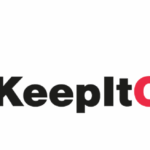Navigating Digital Transformation: Key Insights from the ECOWAS Data Governance Knowledge Exchange
- September 13, 2025
- |
- by Alice Aparo
- |
- No Comments

By Emile Aminti |
West Africa is at a crucial point in its journey towards digital transformation, with strong momentum for effective and unified data governance policies. At the ECOWAS Data Governance Knowledge Exchange held from July 29 to 31, 2025, leaders and experts from civil society, the private sector, and public institutions across the region joined discussions on legal and institutional data governance developments and potential reforms.
The Knowledge Exchange highlighted legal and institutional developments and proposed reforms in response to Africa’s changing data and digital landscape. Presentations reviewed the progress and shortcomings of the 2010 ECOWAS Supplementary Act on Data Protection, emphasizing that rapid technological advancements, particularly in artificial intelligence and cross-border commerce, have outpaced existing regulations. Experts from initiatives like the Data Governance in Africa Initiative stressed the importance of people-centered regulations and the establishment of strong data protection authorities.
Representatives from private companies such as Paystack and Flutterwave shared the real challenges businesses face in navigating outdated and fragmented legal environments. Additionally, international partners such as D4D Hub and GIZ presented practical examples, including open banking, digital health, and agricultural innovation, which rely on secure cross-border data flows. Among the key challenges identified were inconsistent national regulations, lengthy approval processes for data transfers, lack of harmonized legal frameworks, and limited capacity within data protection authorities.
A key theme was the need for legal harmonization and updated data protection laws across all ECOWAS. ECOWAS was urged to expedite the adoption of the revised Supplementary Act to ensure that the region’s standards align with both international and continental data governance frameworks. Harmonizing laws is essential for facilitating digital trade, reducing compliance complexities, and protecting citizens’ rights, regardless of where their data is processed. Participants also called on ECOWAS to create regional dashboards and metrics to openly track progress and accountability across the region.
Building capacity of regulatory agencies and government ministries was identified as another priority. Regulatory agencies, especially national Data Protection Authorities, need ongoing investment in staff, technical resources, and specialized training to enforce data protection laws, address emerging digital risks, and keep pace with rapid technological and policy developments across the region.
At the national level, the forum stressed the need for governments to urgently review and update their legal frameworks, especially in countries that still lack comprehensive data protection laws like Sierra Leone and Guinea-Bissau. Simplifying regulatory processes, increasing institutional transparency, and adopting dashboards for project approval tracking can streamline processes and foster digital innovation. There was also strong support for creating national professional development and certification programs to build a pipeline of data governance expertise within each country.
Innovation was also a major focus. Participants encouraged both governments and ECOWAS to support regulatory sandboxes (controlled environments where new digital solutions can be safely tested under relaxed regulations before wider rollout) and pilot projects that showcase responsible and value-driven uses of data, particularly in sectors like agriculture and health. These initiatives can serve as valuable learning opportunities and demonstrate the benefits of harmonizing national data protection laws and regulations to a common ECOWAS standard.
It is important to note that, despite invitations extended to all ECOWAS countries, officials from Togo and Benin were unfortunately absent. For the region to truly progress, the active involvement of every member state is essential.
The ECOWAS Data Governance Knowledge Exchange concluded with a collective call for ambitious and actionable reforms at both national and regional levels. The digital future of West Africa relies on collaboration, innovation, and ongoing advocacy. Amongst the recommendations fronted include:
- Establishment of a regional fund and technical assistance programs by states , CSOs and other stakeholders aimed at enhancing the skills of data governance professionals, ensuring that every country, regardless of its size or resources, keeps pace with rapid policy, legal, and technological changes.
- Taking strategic measures and undertaking efforts by member states aimed at harmonizing national data protection laws with the regional and international data protection standards
- Collaboratively undertaking efforts by government, CSOs, tech sector, media and academia to invest in building capacity of the key players including parliamentarians and the public in data governance and digital transformation.
- Establishing robust monitoring and accountability mechanisms to enhance transparency and accountability in data governance and digital transformation.


